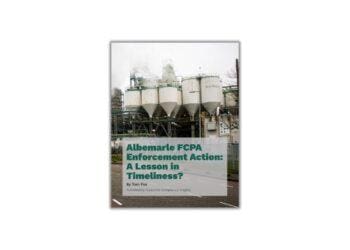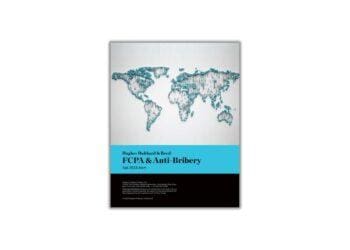Jay Rosen, “Mr. Monitor,” of Affiliated Monitors, continues his running series on monitorships with a subseries on the tools the government uses to guard against fraud, waste and abuse.
The General Services Administration website states, “the suspension and debarment process protects the federal government from fraud, waste and abuse by using a number of tools to avoid doing business with non-responsible contractors. Suspensions, proposals for debarment and debarments are the most widely known tools, as these actions are visible to the public.”
Government Extending its Reach
Suspension and debarment are not civil or criminal matters resulting in a penalty being imposed on a party; instead, they are an administrative matter.
The Department of Justice (DOJ) takes the lead in civil or criminal actions, which are contested litigated matters, with civil and criminal rules around evidence and procedure. While suspension and debarment have evidentiary and procedural considerations, they are much more informal. The rules basically say they should be as informal as is practicable under the circumstances.
Another key difference is the lack of a penalty. Suspension and debarment do not result in a penalty. In fact, the regulations make it very clear. They are used “only as a proactive protective measure, basically to protect the government’s interests from contractors that either don’t have the capability to perform or to provide the goods and services to be a suitable a business partner with the federal government.”
A final major distinction between a civil or criminal matter and suspension and debarment is they are within the hands of the given agency, as opposed to the DOJ or a U.S. Attorney’s office, which have the lead in civil criminal actions.
Conversely, when it comes to suspension and debarment, those actions are distributed across the various federal agencies. Each agency has its own suspending and debarring officials, who have a lot of discretion they can exercise in this process.
The Government Process
Now we will address the remedy of suspension and debarment itself. What is the process the government would go through to reach the point where they might invoke one of these remedies?
The key in suspension and debarment is to protect the government’s interest.
This means when information is identified within the agency that a given contractor lacks the integrity to be a good business partner for the government (or a lack of integrity is suspected), or if a contractor fails to perform, the action an agency will begin to develop is a record of the issues involved. There are a variety of tools an agency will use to develop a record, including coordinating resources from the acquisition community, the investigators within the agency and the suspension and debarment community, which in most cases also has a responsibility for the agencies, fraud coordination or fraud remedies program.
The basic flow begins with the information to establish whether there is evidence that triggers a cause for the action and, if there is, then the decision can be made to initiate that action.
Information flow leads to whether to initiate the action. In the case of a suspension, the focus is usually on a matter that is still being investigated, as suspension is a temporary solution. Debarment is more permanent.
Suspension and debarment, while being technically different, effectively impose the same conditions on the contractor that is the subject of the action. It is that the contractor is excluded from competing for or receiving an award of federal contracts, federal grants and other federal financial assistance.
The remedy of suspension and debarment can be very devastating. Specifically, it has been referred to as a potential death sentence for companies that are dependent on federal dollars for their revenues.
Yet that is not the basis for a decision, which is whether there’s a need to protect the government’s interest.
In case you missed the earlier installments of this ongoing series, please see the links below.
Everything You Always Wanted to Know About Monitors But Were Afraid to Ask
Part 1, Part 2, Part 3, Part 4 and Part 5
Potential Issues in Corporate Monitorships
Part 1, Part 2, Part 3, Part 4 and Part 5










